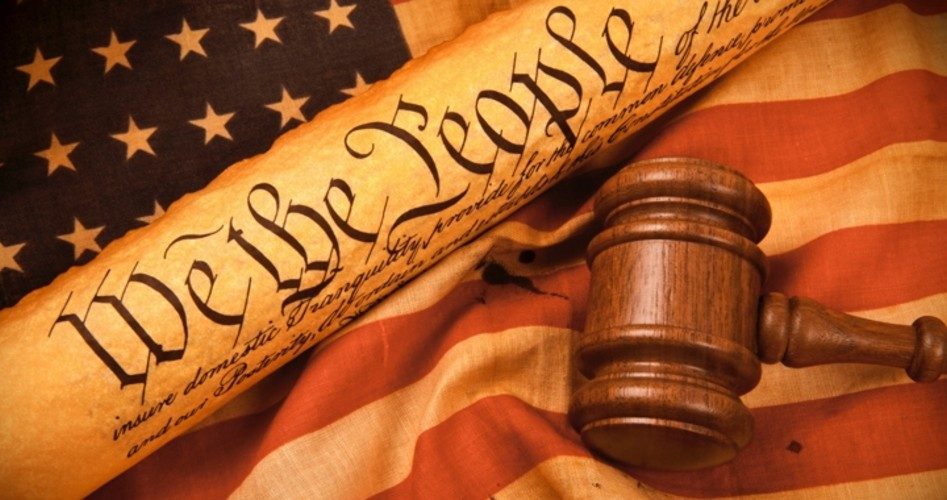
The 10th U.S. Circuit Court of Appeals, located in Denver, ruled on Tuesday that members of the Electoral College cannot be bound by a state law to vote a certain way once they have been elected to serve as an elector. Specifically, the appellate court held that the secretary of state for the state of Colorado violated the U.S. Constitution when he removed an elector and nullified his vote. The elector had been chosen because he was on the slate of electors elected in November. The state cast the majority of its popular vote for Democratic presidential hopeful Hillary Clinton.
The Colorado secretary of state removed the elector and appointed a substitute, who then voted for Clinton.
At present, the ruling only affects Colorado and the five other states — Kansas, New Mexico, Oklahoma, Utah, and Wyoming — that are in the 10th Circuit.
In short, the ruling would mean that, once the elector is chosen, that elector is free to vote for any candidate of his or her choosing, regardless of how the state’s popular vote went, or what laws the state legislature may have instituted for electors to follow.
There have been few “faithless electors” — electors who failed to vote for the winner of their state’s popular vote — in American history, and none have affected the outcome of the election. Usually, a “faithless elector” casts his or her vote as some sort of protest.
{modulepos inner_text_ad}
The term Electoral College does not appear in the U.S. Constitution, although the term elector does. According to the Constitution, each state is to appoint, by whatever method the state legislature determines, a slate of electors. In the early years of the Republic, many state legislatures simply chose the electors themselves. As time went on, however, more and more state legislatures passed laws that their state’s electoral votes would be awarded to the winner of the popular vote in their state. Today, all states, except for Nebraska and Maine, allot all of their state’s electoral votes to the winner of the popular vote statewide. Nebraska and Maine give an electoral vote to the candidate who wins each congressional district, and two votes for the candidate who wins the popular vote in the state.
Often, we hear that presidential elections are not determined by the popular vote. Actually, while the winner of the presidential election is not the person who runs first in the national popular vote, candidates win by winning the state-by-state popular vote.
When the Framers of the Constitution created the electoral system of choosing a president — a system which Alexander Hamilton said caused little controversy at the Constitutional Convention, and which he described as an “excellent” system — it was their intention that the states would choose the president of the United States. This was because they had created a federal republic, not a unitary democracy.
One reason that there are so few “faithless electors” is because the men and women who become electors are not chosen at random. They are nominated for the office by their political party, usually as a reward for years of faithful service in the party. In other words, they are ordinarily staunch party supporters. If their party’s candidate wins the popular vote in the state, they are therefore elected as an elector from their state. The chances that a hard-core dedicated Democrat is going to cast his or her vote for the Republican, or vice-versa, is rather remote.
What happened in Colorado is that Michael Baca, the elector who was removed, had been part of a group calling itself the “Hamilton electors,” a group who tried to convince electors pledged for either Clinton or Donald Trump to unite behind a third candidate to deny Trump his election as president. Baca wrote in the name of Ohio Governor John Kasich, a liberal Republican. Secretary of State Wayne Williams refused to count this vote, and summarily removed Baca as an elector. He then named a replacement, who dutifully voted for Clinton.
Jena Griswold, who is now secretary of state in Colorado, denounced the ruling of the 10th Circuit. “This court decision takes power from Colorado voters and sets a dangerous precedent. Our nation stands on the principle of one person, one vote.”
Actually, Griswold is not correct. The Constitution did not create a “one person, one vote” situation in the election of the president, since the president is not elected by a national popular vote. Neither is the Senate, where each state gets to elect two senators, regardless of the state’s population. Members of the House of Representatives are also not elected by some national popular vote, but rather only by the voters of a specific congressional district.
All of this is because the founding principle of the United States is not democracy, or majority rule. Rather, it is the preservation of the people’s inalienable rights. If the purpose of government is simply majority rule, as Griswold seems to believe, then no person’s rights are secure. But Thomas Jefferson, writing in the Declaration of Independence, argued that “just” powers of government are those which carry out this function of government — to make “secure” the rights of the people.
That is why, although Jefferson and Hamilton did not always agree, the two would have most likely favored the election of the president by the Electoral College, and would have opposed turning our rights over to the whims and wishes of a popular vote.
It is not certain what the long-range effect of the ruling will be, as the U.S. Supreme Court would have to take up the case.
Steve Byas is a university instructor in history and government and author of the book, History’s Greatest Libels. He may be contacted at [email protected]



